Tiger is the largest cat species and a fascinating animal for kids. It is well known for its strength and beautiful coat pattern. Kids love to read about them and on this page, they are going to learn “How Long Do Tigers Live“. We have gathered interesting information about the Tiger Lifespan which will give you and your kids a complete idea about the number of years for which they can stay alive. We have listed down the average lifespan, lifespan in wild and captivity. You are also going to learn about the oldest tigers ever recorded and the lifespan of the specific tiger species.
How Long Do Tigers Live
The lifespan of tigers depends on whether they live in captivity or the wild. They live for 20 to 25 years in captivity because of regular food supply, medical care, and safety from most of the natural threats. In the wild, they can’t survive more than 15 years.
Average Lifespan of a Tiger
The average lifespan of a tiger is up to 22 years in captivity. This period in the wild is 10 to 15 years.

Oldest Tiger Ever
Guddu was the world’s oldest surviving male Bengal tiger, who died at the age of 26 at Kanpur zoo, India. Before Guddu, the record was held by Flavio and Ramu tigers, both of who died at the age of 24. Machali tigress was considered the world’s oldest female tiger, died at the age of 20. Shasta the Liger was believed the world’s oldest Liger (an offspring of a female tiger and male lion), who died at the age of 24.
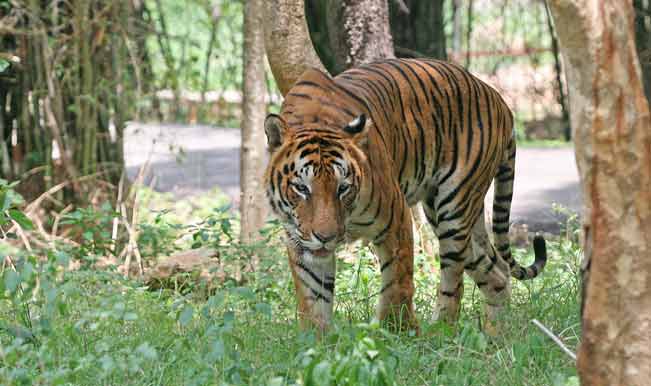
How Long Do Bengal Tigers Live
The average lifespan of Bengal tigers in the wild is 8 to 10 years. The maximum age of a wild Bengal tiger is 15 years. But very few of them reach this limit in the wild as finally they become too weak and lose the ability to hunt large animals.
How Long Do Bengal Tigers Live In Captivity
The maximum age of Bengal tigers in captivity is 18 to 20 years. Very few of them reach beyond the age of 25. Bengal tigers are one of the few wild animals species that flourish and thrive well in captivity.
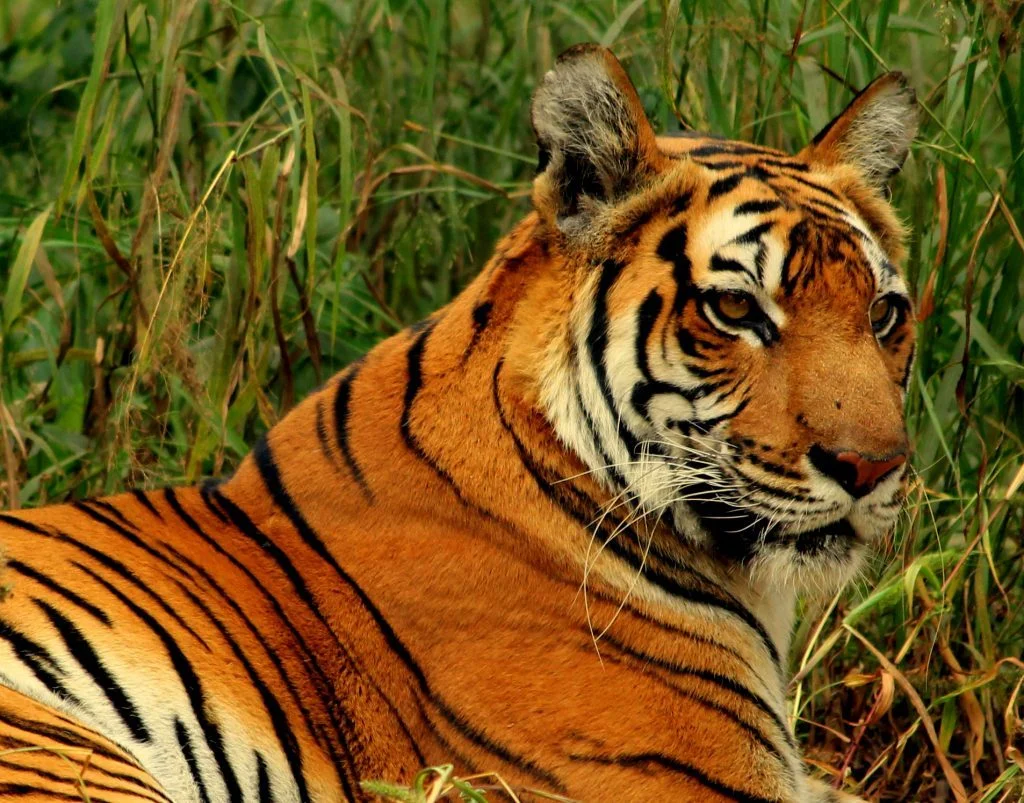
How Long Do White Tigers Live
As White Tigers are extinct in the wild, there is uncertainty about their lifespan in the wild. White tigers are the descendants of Bengal tigers, so there is a high possibility that they have a lifespan like Bengal tigers. Despite that, some of the scientists believe that White tigers could have been long ago in the wild than Bengal tigers. However, the average lifespan of white tigers is considered to be 10 to 12 years in the wild.
How Long Do White Tigers Live In Captivity
White tigers live up to 20 years in captivity.
Learn more: White Tiger Facts

How Long Do Siberian Tigers Live
The average lifespan of Siberian tigers is 15 to 17 years in the wild. Their lifespan in the wild mainly depends on the density of prey. They live long if the animals they hunt exist in greater numbers in their living territories.
How Long Do Siberian Tigers Live In Captivity
The Siberian tiger lives for 20 to 25 years in captivity.
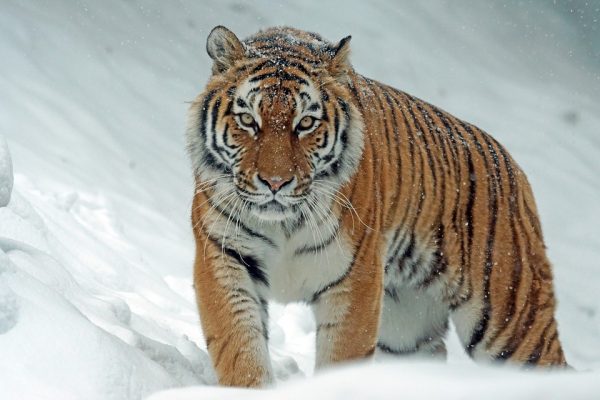
How Long Do Sumatran Tigers Live
The Sumatran tigers live for about 15 to 20 years in the wild. This tiger subspecies was listed on the IUCN Red List in 2008 as Critically Endangered. Due to the threats, most members of the Sumatran tiger subspecies do not cross their normal age limits in the wild.
How Long Do Sumatran Tigers Live in Captivity
The lifespan of Sumatran tigers is 20 to 25 years in captivity.
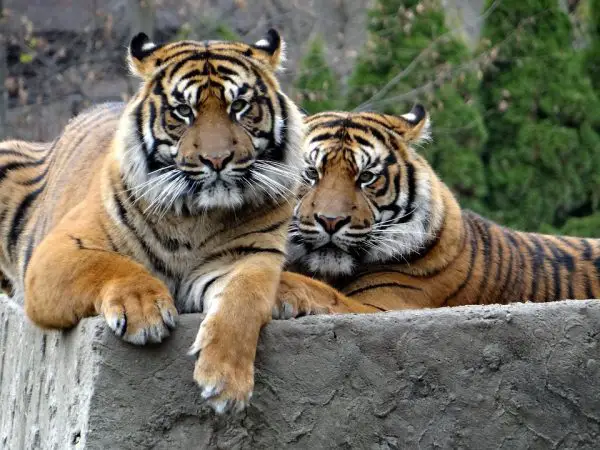
How Long Do Indochinese Tigers Live
The lifespan of Indochinese tigers also depends on whether they live in the wild or captivity. This tiger subspecies has also been listed on the IUCN Red List since 2008 as Critically Endangered and is going to be extinct in the wild. It is believed that they live for up to 15 years in the wild.
How Long Do Indochinese Tigers Live in Captivity
The age limit of Indochinese tigers in captivity is between 20 and 26 years.
How Long Do Malayan Tigers Live
In the wild, Malayan tigers live for 15 to 20 years.
How Long Do Malayan Tigers Live in Captivity
Malayan tigers live for 20 to 26 years in captivity. Like Bengal tigers, the Malayan tigers are doing well in captivity.
How Long Do South China Tigers Live
Of all the tigers’ subspecies, the South China tiger is the most endangered one. Their lifespan in the wild is up to 15 years, however, they are possibly extinct in the wild and no South China tiger has been recorded since 1970.
How Long Do South China Tigers Live in Captivity
South China tigers live for up to 20 years in captivity.
How Long Do Javan Tigers Live
Javan tiger is a tiger species that lived on the Java island of Indonesia. Since the 1970s they are extinct and nothing is known about their lifespan in captivity or the wild. However, it is believed that their lifespan was similar to that of the other tigers.
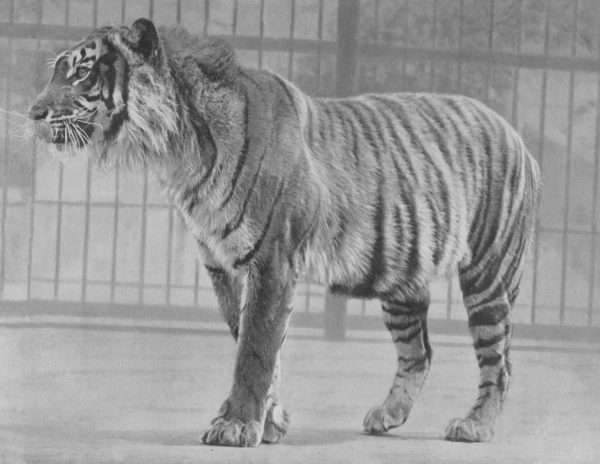
How Long Do Bali Tigers Live
Bali tiger is also an extinct species of tiger that lived in the Bali island of Indonesia. It is believed that Bali tigers have had up to 10 years of lifespan in the wild.

Lifespan Comparison Chart of Different Tiger Species
| Tiger | Average Lifespan | Lifespan in the Wild | Lifespan in Captivity |
| Bengal Tiger | 12 to 18 years | 8 to 10 years | 18 to 20 years |
| White Tiger | 10 to 16 years | 10 to 12 years | Up to 20 years |
| Siberian Tiger | 15 to 17 years | 15 to 17 years | 20 to 25 years |
| Sumatran Tiger | 15 to 20 years | 15 to 20 years | 20 to 25 years |
| Indochinese Tiger | 15 to 20 years | Up to 15 years | 20 to 26 years |
| Malayan Tiger | 15 to 22 years | 15 to 20 years | 20 to 26 years |
| South China Tiger | 15 to 20 years | 12 to15 years | Up to 20 years |
| Javan Tiger | Unknown | Unknown | Unknown |
| Bali Tiger | Unknown | Up to 10 years | Unknown |
